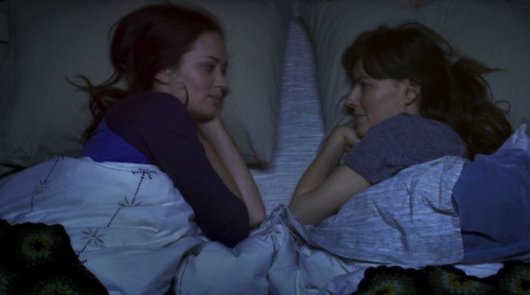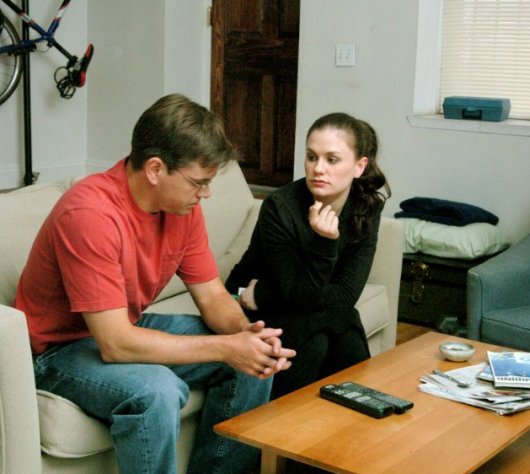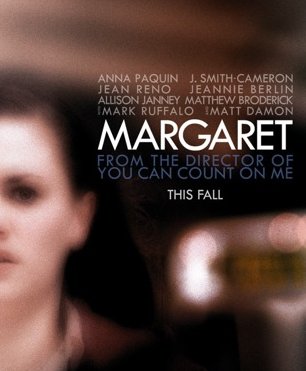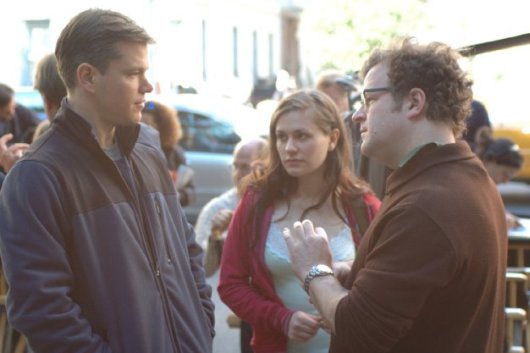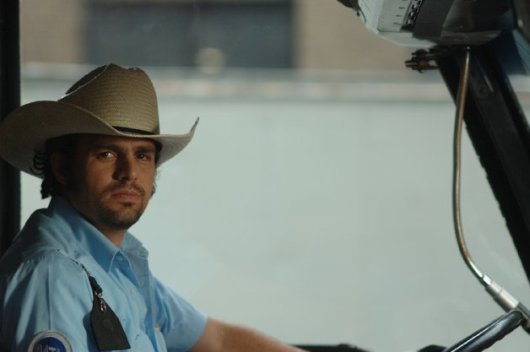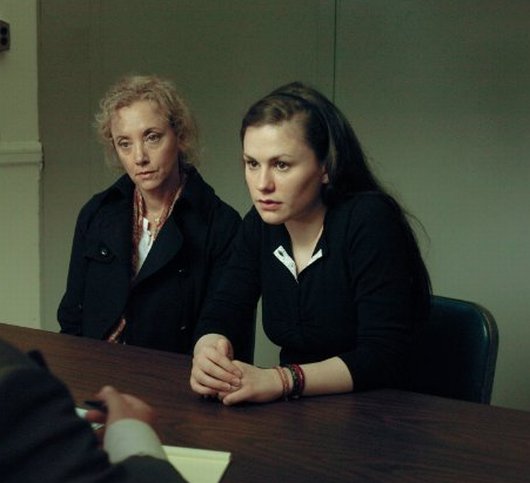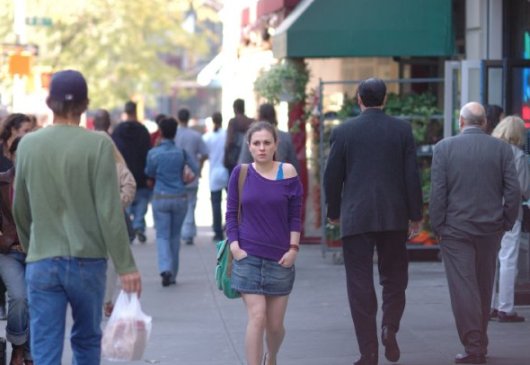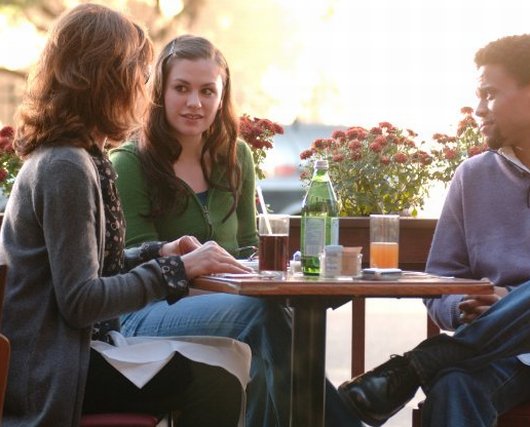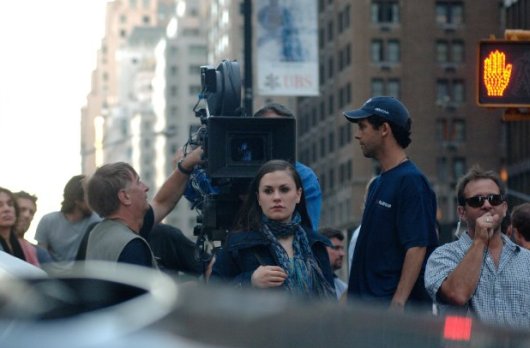 FILM
FILM In Which We Look Back Or Look Out
 Thursday, June 21, 2012 at 2:43PM
Thursday, June 21, 2012 at 2:43PM 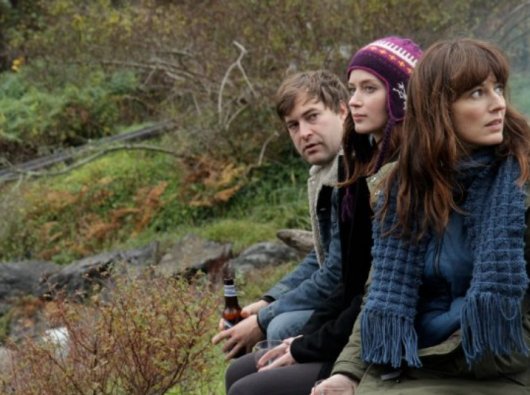
Lumpy & Fuzzy
by SARAH LABRIE
Your Sister's Sister
dir. Lynn Shelton
90 minutes
 Lynn Shelton makes slow, imperfect dramatic comedies about people melting into their late thirties. She shoots in and near Seattle, tinting her images with the washed out grays and taupes of a rainy day at the beach. Dialogue drifts from moment to moment, reflecting her characters’ ambivalent drift towards adulthood. Her actors are youngish but not young, jaded, but not old enough yet to be resigned.
Lynn Shelton makes slow, imperfect dramatic comedies about people melting into their late thirties. She shoots in and near Seattle, tinting her images with the washed out grays and taupes of a rainy day at the beach. Dialogue drifts from moment to moment, reflecting her characters’ ambivalent drift towards adulthood. Her actors are youngish but not young, jaded, but not old enough yet to be resigned.
In her second feature, 2009's Humpday, Joshua Leonard and Mark Duplass play former college best friends who haven’t spoken for a while. Andrew (Leonard) has been traveling through Mexico making dubious-sounding art, while Ben (Duplass) picked up a real job, a wife and a house. Andrew shows up unannounced one night and invites Ben to a party at a commune. There, drunk and goaded on by a pair of charismatic lesbians, he dares Ben to make a gay porn for a film festival. Both men are straight and their intentions are oddly pure — Andrew’s not attracted to Ben; he only wants proof that his old friend is still cool. Ben, meanwhile, wants to find out if, underneath the mortgage and the marriage, this is even true.
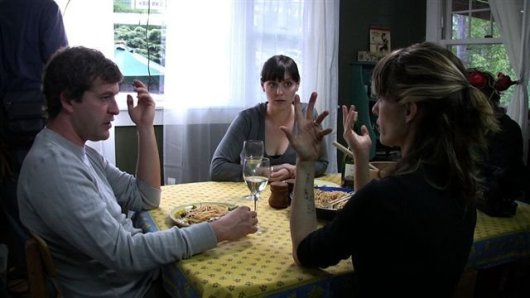
This is a ridiculous premise, but onscreen it works. Shelton directed from a ten-page outline, giving Ben (Mark Duplass) and Leonard (Joshua Leonard) free reign to make up a narrative as they went. In the year of the rise of Judd Apatow, I don’t think anybody expected 2009’s most emotionally honest buddy comedy to be directed by a woman. The movie was a surprise hit, taking home a Special Jury Prize at Sundance, and winning Shelton a spot in the indie firmament next to Andrew Bujalski (Mutual Appreciation, Funny Ha-Ha), Joe Swanberg (Nights and Weekends) and Duplass (The Puffy Chair). Those directors made careers off messy movies about twenty-somethings at a loss — Shelton’s film picked up where they left off, when the aimless years were winding down, but a purpose still hadn’t been found.
Watching it for the first time three years ago, I couldn’t help but wonder what the same story would look like if Andrew and Ben were women. So when I heard about Shelton’s latest, Your Sister’s Sister, I was intrigued. I never jumped on the Bridesmaids train, and I wanted to see if she — if anyone? — could make a movie that proved women in their thirties could be listless and creative and insecure in a funny, meaningful, narrative-sustaining way.
Still, the poster gave me pause. Humpday fetishized Duplass and Leonard’s matching lumpy, fuzzy stomachs. The one-sheet for Your Sister’s Sister highlighted Emily Blunt’s feline grace and Rosemarie DeWitt’s porcelain jaw. Iris (Blunt) is meant to be secretly in love with her best friend Jack (Duplass), but next to Blunt, with her famous-person skin and perfect teeth, Duplass looks like a baked potato. I had a sneaking suspicion (confirmed) that no one was going to take the opportunity to address this disparity.

Shot on the San Juan Islands off the coast of Seattle, the movie itself is beautiful, the camera lingering on fog over lakes and black trees against a navy sky. The story here has the same blue undertones as Humpday, but the narrative is tighter and twistier, the pacing more artful. Jack’s brother died recently and Jack is listing into alcoholic depression. Iris sends him off to recover at her father’s empty house on Puget Sound. Jack shows up to find her half-sister, Hannah, already there, self-medicating after a breakup. They have drunken, disappointing sex. The next day, Iris arrives for a surprise visit, and a quiet little chaos ensues.
Blunt is appropriately chirpy and adorable as the favored younger sibling. Dewitt is compelling as the alternately abrasive and affectionate older daughter. The sisters bicker and make up, bicker and make up—Iris slips butter into vegan Hannah’s mashed potatoes, Hannah retaliates by telling embarassing stories about Iris’ pubic hair. For a while, you worry this is as high as the stakes are going to get. And then, suddenly, things swivel in a darker direction. The plot turns soap opera thick, with formulaic intrigues — Jack is also secretly in love with Iris! Hannah is a lesbian who was using Jack to have a baby! — and an empty payoff of a finale. In the penultimate scene, everybody gets what they want and nobody gets hurt. It’s hard not to feel like Shelton rushed things, worried she was going to run out the clock on her audience’s attention.

This is a shame. Shelton’s movies deal with people living through the age when hours become precious and wasting them starts to feel criminal. It’s around thirty that decisions turn irreversible and life ceases to feel infinite. In the years leading up to this age, it becomes more and more difficult to make any decisions at all. While Humpday’s meandering direction reflected this, Sister feels rushed and nervous, unwilling to probe that kind of stultifying darkness.
Your Sister's Sister also takes place in a contextless universe, free of politics, economic reality and people who aren’t middle class and white. It’s a little bit unfair to fault Shelton for something most other American indies are also guilty of, but this flaw is reflective of a larger issue. Shelton shot her third feature on a microscopic budget, the cast improvising the story from scene to scene. Without the constraints of studio notes and debt, they were free. Here was a chance to make a movie that didn’t look like other movies — the way Humpday was a buddy comedy that subverted the genre even as it raised the bar. Instead Your Sister’s Sister is a sweet romantic comedy perfect for watching on airplanes.
Time drifts along. Adulthood creeps up on all of us, whether we notice it or not. When it comes, it’s not always in a shape we recognize, and it’s never as tidy as we thought it would be. While this makes for a frustrating emotional reality, it could make for a really fascinating movie about two sisters. It’s too bad Shelton wasn’t brave enough to make it.
Sarah LaBrie is the senior contributor to This Recording. She is a writer living in New York. You can find her website here. She last wrote in these pages about Damsels in Distress. You can find an archive of her writing on This Recording here.
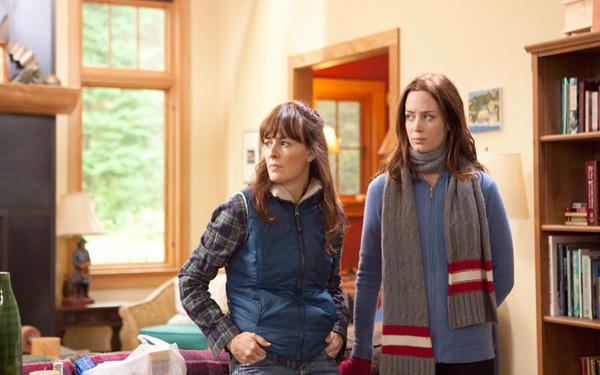
"Who" - David Byrne & St. Vincent (mp3)
"Save Me From What I Want" - St. Vincent (mp3)
